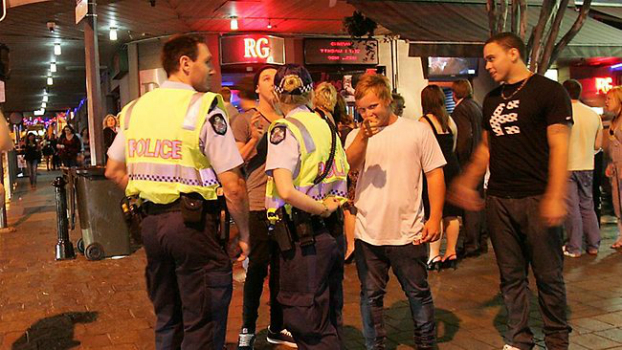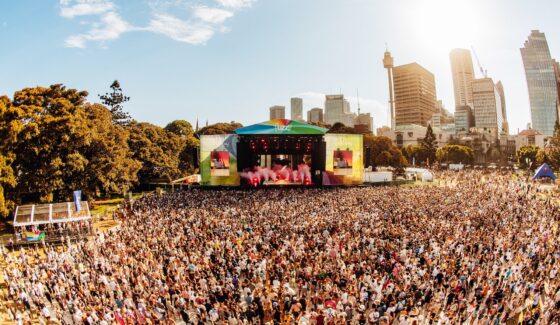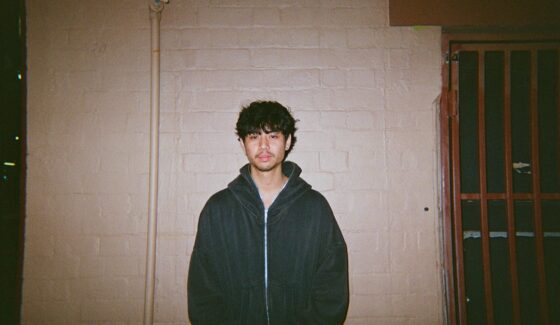QLD Lockout Laws Give Little Hope To Brisbane’s Prospering Culture

With the introduction of lockout laws to Queensland from July 1, there’s a lot of uncertainty about how the laws will affect the culture of Brisbane’s growing nightlife. The state will have the toughest lockout laws in the country with 1am lockouts, 3am last drinks, no high-alcohol drinks (shots) after midnight, and no takeaway booze after 10pm.
On the surface these laws appear to only affect the late night party goers, but the harsh reality is they will be culturally and economically devastating for the whole late night industry. Businesses and nightlife in King’s Cross have already suffered under the New South Wales laws. The Late Night Management Areas Research Phase 4 Report, commissioned by the City of Sydney, has detailed the damage already done to night time economy.
“From 2012 to 2015, it reported Kings Cross foot traffic was down 84 per cent and a 40 per cent drop in revenue, which has resulted in 42 bars, clubs, and small businesses closing down.”
From 2012 to 2015, it reported Kings Cross foot traffic was down 84 per cent and a 40 per cent drop in revenue, which has resulted in 42 bars, clubs, and small businesses closing down. It’s hard to imagine how Labor’s harsher laws will affect the Fortitude Valley, one of Brisbane’s most popular nightlife precincts.
Our Nightlife Queensland says all expert evidence pointed to reduced trading hours, not lockouts. “New South Wales applied these laws to Kings Cross in Sydney because they had some serious issues there. They had assault rates four times higher than we have ever seen here in Queensland. If Fortitude Valley has a big problem and the data shows that, then address Fortitude Valley, not do it to everyone else in the state,” Secretary Nick Braban said.
Braban said while we think violence is the issue, it’s only 0.01 per cent of the people that are committing these types of crimes. We’re just pushing it to a different time and space if we are closing venues earlier. “We need to educate and enforce the laws we have because that will cut across the whole community, not just in entertainment precincts, but domestic violence as well,” he said.
At this point in time, we can only speculate about the repercussions of the lockout laws but we do know that it will have a pretty drastic effect on the way people frequent venues. “For the first six to 12 months it will be business as normal, venues will be constrained by the time they have to stay open and we will see a migration of people moving from smaller to larger venues earlier in the night.
“People make the argument that bands play earlier in the night and finish up before 1am, but those music venues rely on trade beyond when a band plays to keep the doors open.”
“The worry is the cool little cocktail bar is going to suffer because people are going to leave that earlier to go to a club and that affects their business and if they can afford to stay open,” Braban said. Likewise, live music culture will definitely see a huge shift, the extent of which only time will tell. “People make the argument that bands play earlier in the night and finish up before 1am, but those music venues rely on trade beyond when a band plays to keep the doors open. It’s the small venues that really struggle to pay the rent and people over time might change their habits but they need to survive over that change-over period,” Braban said.
The Queensland Government claims their reasoning behind the laws is to reduce alcohol-fuelled violence. But in theory these laws will create an exodus of people on the streets between 1am and 3am, when they naturally would have dispersed over a longer period of time. Local activist group Right To A Good Night says 15 per cent of night time violence occurs in venues and the rest occurs out in the suburbs or on the streets.
“You can just see this problem getting exacerbated. We’ve all been in that cab line on Ann Street and you can see how quickly things can change. If that line is twice as long, which it will be, there is twice as much chance it will go bad,” Manager Jeremy di Rie said.
Melbourne tried these laws and found they increased violence, scrapped them and came up with real working alternatives. Which were 24-hour public transport, freezing licenses on big booze bars to serve alcohol after 1am, and gave exemptions for live music venues, places that serve food and small bars. “You need to cultivate these small bar cultures and that way you can have these fun places to go out and you can still have live music without losing the city’s cultural hubs.”
“…casinos are exempt because their main purpose of function is not alcohol. But by that same logic, live music venues should be exempt too.”
Mr Di Rie says house shows and parties are going to come back and we could be facing un-licensed venues with hundreds of people in them, which could potentially see underage kids drinking in an environment with no security. “If there’s a demand for something, there will always be a supply and I think the government has really gone about this in the worst possible way.”
Casinos across Queensland are exempt to these laws as the Government considers their licensing laws restrictive enough. The argument that casinos are for gambling as opposed to drinking is a flawed one. The issue of gambling in the community is far more pervasive than going to Fortitude Valley.
We’ve seen it in Sydney and Melbourne, both The Crown and The Star casinos have nightclubs for people to go to. Di Rie thinks it’s all well and good that casinos are exempt because their main purpose of function is not alcohol. But by that same logic, live music venues should be exempt too.
Recently ACT Chief Minister Andrew Barr ruled out lockout laws in Canberra, saying lockout laws would not be part of the government’s response to violence and anti-social behaviour in the city. Similar to how Queensland’s laws were spurred on by one punch death of Cole Miller, Canberra has been under fire after another one-punch attack in Tuggeranong. Barr said the latest attack had been at 12.30am and lockout laws would not have made a difference. The response that both Sydney and Queensland have introduced will have “detrimental impacts in many other areas,” he said.
Mr Barr said Canberra will be ruling out such “dramatic” changes and are “conscious of the need to work with all stakeholders”. After 18 months a review of these harsh laws will be conducted, until then we have to trust that Brisbane will make it work.
Click HERE to read what Brisbane’s live music venues think of the new lockout laws.







